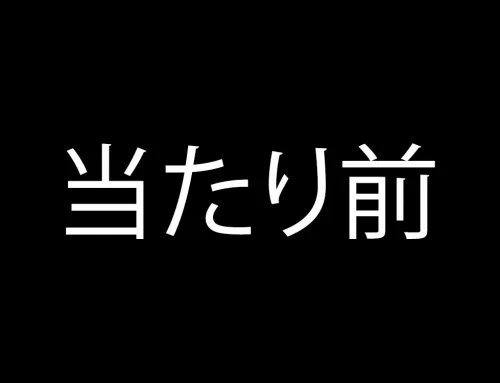Have you ever found yourself bored at work? It’s a common experience we can all relate to. Boredom is that feeling of wanting to engage in a satisfying activity but being unable to do so. Interestingly, even when we’re busy, we can still experience boredom. We often view boredom as a negative state, a waste of time, or a missed opportunity to be productive or engaged in something interesting. It’s no wonder that boredom can trigger a strong desire to escape the situation or even contemplate leaving the job altogether. In today’s digitally connected world, escape is just a tap away on our smartphones, offering instant distractions and a temporary relief from boredom. However, research suggests that relying on mindless scrolling only provides short-lived pleasure while negatively impacting our mental health and overall quality of life.
Instead of reaching for your phone the next time boredom strikes at work, consider the potential benefits that boredom can offer. By tuning into your feelings and understanding why you’re experiencing boredom, you can unlock important insights and opportunities.
Examining the Pros and Cons of Workplace Boredom Boredom has earned a negative reputation for valid reasons. At work, it is often associated with counterproductive behavior, discomfort, and a longing for the day to end or a new role to begin. Boredom in the workplace has been linked to risky decision-making, costly mistakes, accidents caused by lack of focus or inattention, and overall fatigue. It can also lead to unproductive behaviors like excessive non-work-related browsing and emotional immaturity. Prolonged exposure to monotonous tasks can even induce hallucinations. Studies have also shown a correlation between workplace boredom and burnout, decreased job satisfaction, and an increased desire to quit.
However, recent research suggests that boredom, when managed constructively, has its “bright sides.” Moments of boredom can provide a pause or a brief respite for our brains and bodies in a world filled with distractions and overstimulation. Boredom can create space for daydreaming, which can spark creativity, generate new ideas, and foster innovation. Prolonged boredom can prompt self-reflection, leading to questions like, “Am I on the right path? Am I doing what truly matters?”
Utilizing Boredom for Personal Growth While we don’t encourage seeking out jobs that consistently induce boredom, learning to work with and harness your boredom can help you leverage its potential benefits. Here’s how:
- Observe: When boredom sets in, avoid immediately giving in to the urge to distract yourself. The fact that you’ve recognized your boredom means you’ve resisted the instant gratification of mindless scrolling, even if only temporarily. Acknowledging and labeling your boredom gives you an opportunity to develop resilience and discover the positive aspects of boredom. Most importantly, don’t make impulsive decisions, such as quitting your job, just to escape the discomfort.
- Analyze: Not all boredom is the same. Research indicates that different types of boredom manifest in distinct ways, influencing our behaviors and mindset. By identifying the specific type of boredom you’re experiencing, you can develop strategies to address it or prevent it from affecting your decision-making.
Reflect on what your boredom is trying to communicate. Perhaps you need a short break after an extended period of work, or maybe the repetitive nature of your tasks is draining your motivation and energy. Consider the specific aspects of your work that bore you—whether it’s your role, the content or format of your tasks, or your career prospects. Recognizing patterns can help you evaluate your goals, values, and whether you feel stagnant or moving forward. Here are five types of boredom to consider as you decode your own:
- Indifferent boredom: This is a relatively positive form of boredom that can feel like relaxation or a sense of cheerful fatigue. It involves a withdrawal from the external world and can serve as an opportunity for rest and recovery, particularly during busy days.
- Calibrating boredom: This type occurs when you’re not fully engaged in a task, leading your mind to wander. You may feel unsure about how to change the situation but have a desire to escape.
- Searching boredom: This restlessness compels you to actively seek alternative activities and distractions to alleviate the negative experience. While unpleasant, this type of boredom can lead to positive outcomes, such as creativity, innovation, and personal growth.
- Reactive boredom: Triggered by repetitive or tedious tasks, this type manifests as restlessness, frustration, and a strong desire for change or escape. It can result in angry or aggressive responses toward others or the boring experience itself.
- Apathetic boredom: This type is characterized by disinterest, lack of motivation, and emotional detachment from activities that would typically be stimulating or enjoyable. It can stem from chronic stress, depression, or other mental health issues, leading to feelings of hopelessness and helplessness.
- Make Decisions: Based on the type of boredom and the insights it provides about yourself or your situation, determine the appropriate course of action. Sometimes boredom is a signal that you need a moment to relax and unwind. All roles involve tasks that may be monotonous or frustrating, but necessary to reach more fulfilling aspects of your work. If you consistently experience boredom, consider job crafting to highlight the elements of your role that you genuinely enjoy. This could involve altering the type, variety, complexity, or significance of your tasks. Actively seek out and champion new ideas, which can invigorate your leadership abilities and potential. Engaging in reflection or nostalgic moments can counteract the sense of meaninglessness that boredom may bring.
- Cultivate Mindful Boredom: Embrace moments of boredom as opportunities to unwind in a fast-paced, hyperconnected world. Rather than resorting to mindless distractions, use this time for positive intentions. Take a moment to breathe, engage in a stimulating activity, or mindfully observe and let the discomfort pass. Boredom has the potential to ignite creativity, so consider incorporating unstructured time into your work routine for moments of innovative thinking.
Although boredom may not be the most pleasant feeling, it can serve as a catalyst for personal growth. By recognizing the type of boredom you’re experiencing, understanding its underlying causes, and taking appropriate action, you can harness its potential benefits. Working with boredom can help foster creativity, resilience, and adaptability in the face of new challenges. So instead of avoiding or dismissing boredom, consider embracing it as a valuable tool for self-discovery and leading a more fulfilling life.









Leave A Comment